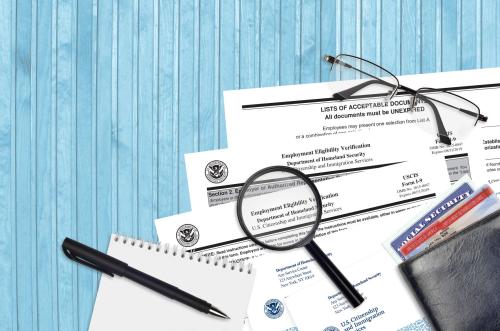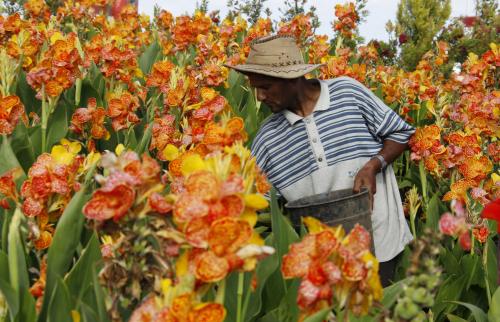Close to a quarter of a million internally displaced persons in Georgia, in particular those from Abkhazia, constitute a group that have had to suffer the fate of being in displacement for a particularly long period. Their displacement has become protracted, and as a consequence many live at the margins of society, in economic, social but also psychological terms. It is therefore very timely to explore today the legal aspects of return of internally displaced persons and refugees to Abkhazia. The men and women I met in overcrowded and dilapidated collective shelters, desperately trying not to despair and not to loose the little dignity that was left to them, deserve that we provide them with a ray of hope.
What are the international standards regarding the return of internally displaced persons to their places of origin? The 1998 Guiding Principles on Internal Displacement, which have been recognized by the General Assembly as an important international framework for the protection of internally displaced persons, state four basic rules in Principles 28 and 29.
First, there are three types of durable solutions for internally displaced persons, namely return to their former homes; local integration, i.e. starting a normal life in the area they were displaced to; and resettlement in another part of the country. Second, internally displaced persons as citizens of their country who, like anybody else, can invoke their freedom of movement and right to choose their place of residence, are entitled to freely choose between these options. Just as they cannot be prohibited to remain where they presently are, they cannot be forced to abandon their right to return. Third, return must be voluntary, i.e. not only free of coercion but also based on an informed choice, and in safety and dignity, i.e. under conditions that allow returnees to live without threats to their security and under economic, social and political conditions compatible with the requirements of human dignity. Of course, such a choice is only possible if the three options, including voluntary return in safety and dignity are in fact available. Finally, internally displaced persons and returnees are entitled to be protected against discrimination and to recover their property and/or receive compensation in cases of damage or loss.
With regard to Abkhazia, the Security Council, in its Resolution 1781(2007) stresses “the urgent need to alleviate the plight of refugees and internally displaced persons and the need for a perspective of life in security and dignity in particular for a new generation growing up outside Abkhazia, Georgia” and “reiterates and reaffirms as fundamentally important the right of return for all the refugees and the internally displaced persons to Abkhazia, Georgia”. These are very important statements which I wish to highlight. I also welcome and support the Strategy to address internal displacement problems in Georgia, adopted by the Government early this year. This strategy is in line with these principles and follows a two-pronged approach based, on the one hand, on the right to return and, and on the other hand, allowing internally displaced persons to live normal lives and join the mainstream of Georgian life while awaiting the moment when return in safety and dignity becomes possible. I hope that the Action Plan prepared by the relevant Ministries during the previous months will be adopted soon in order to turn this strategy into reality.
Reaffirming the right to return is important, but not sufficient. Experience shows that three elements must be in place to make return not only possible but successful: (a) ensuring safety for the life and limb of returnees; (b) returning property to the displaced and reconstructing their houses; and (c) creating an environment that sustains return and reintegration, which allows life under adequate conditions, including respect for human rights in general, education, access to health and social services, income-generation opportunities, non-discrimination and possibilities for political participation.
As my reports to the Human Rights Council and the General Assembly show, much remains to be done to achieve a situation where these conditions are fully in place. In this context, in 2006, I urged the Abkhaz de facto authorities to allow persons displaced from Abkhazia to return to their homes in the Gali district and elsewhere in the territory under their control. I also urged them to refrain from adopting measures incompatible with the right to return, to prevent and punish acts of violence against returnees and other violations of their human rights; to respect the right of returning internally displaced persons to use their own language, including in educational institutions.[1] These recommendations remain valid today. In addition, and as stressed by the Security Council in its recent resolution, it is important that the property and residency rights of those who had to flee are fully respected and handed back to their rightful owners upon return.
How to achieve a situation where all of this becomes reality? Security Council Resolution 1781 (2007) designs a three-step strategy. First, the two sides should “finalize without delay the document on the return of refugees and internally displaced persons” they have been discussing. Second, they should “increase their bilateral contacts by making full use of all existing mechanisms … in order to come to a peaceful settlement, including the safe and dignified return of refugees and internally displaced persons.” Third, they should “implement the UNHCR’s Strategic Directions for their return in the first instance to the Gali region.” This strategy seems relevant and realistic to me, and I can only encourage the Government of Georgia and the Abkhaz de facto authorities to implement it. I believe that implementing the UNHCR’s Strategic Directions, which have been agreed upon by the Government of Georgia and the Abkhaz de facto authorities, should be the first concrete step in direction of return.
Let me conclude with expressing the hope that this panel will contribute to finding solutions, which will allow persons displaced from Abkhazia who wish to do so, to return there in safety and dignity in the very near future.
Thank you for your attention.
[1] E/CN.4/2007/71/Add. 7.



Commentary
Legal Aspects of Return of Internally Displaced Persons and Refugees to Abkhazia, Georgia
November 29, 2007